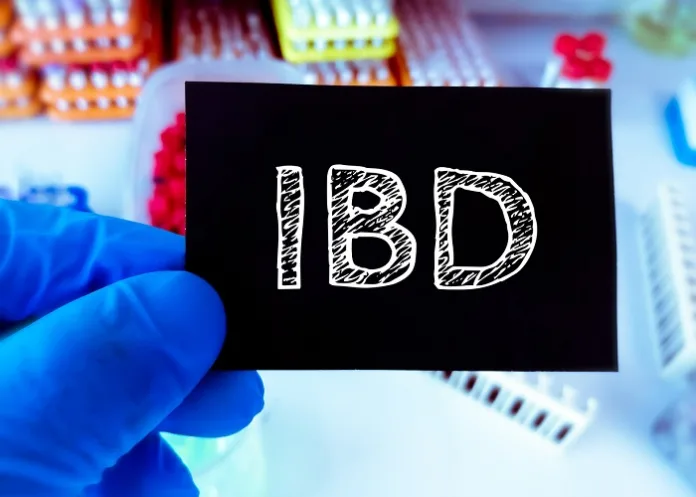Researchers have discovered a major driver of inflammatory bowel disease (IBD) and several other immune disorders that affect the spine, liver and arteries, raising hopes for millions of people worldwide.
The findings are particularly noteworthy because the newly found biological pathway can be targeted by drugs that are already used, with work under way to adapt them to patients with IBD and other conditions, reports The Guardian.
“What we have found is one of the very central pathways that goes wrong when people get inflammatory bowel disease and this has been something of a holy grail,” said Dr James Lee, group leader of the genetic mechanisms of disease laboratory at the Francis Crick Institute in London.
“Even for pure, fundamental immunology this is a really exciting discovery. But to show this is dysregulated in people who get disease not only gives us a better understanding of the disease, it tells us this is something we can treat.”
More than half a million people in the UK have inflammatory bowel disease, the two main forms of which are Crohn’s disease and ulcerative colitis, with at least 7m affected globally.
They arise when the immune system attacks the bowel, causing an array of debilitating symptoms from abdominal pain and weight loss to diarrhoea and blood in stools. While medicines like steroids can ease the symptoms, some patients require surgery to remove part of their bowel.
Lee’s research team “stumbled” on the discovery after investigating a “gene desert”, a stretch of DNA on chromosome 21 that does not code for proteins, which has previously been linked to IBD and other autoimmune diseases.
Writing in Nature, they describe how they found a section of DNA that behaves like a volume control for nearby genes. This “enhancer” was seen only in immune cells called macrophages where it boosted a gene called ETS2 and ramped up the risk of IBD.
Through gene editing experiments, the scientists showed that ETS2 is central to the inflammatory behaviour of macrophages and their ability to damage the bowel in IBD.
“There’s been a search for some time for the central drivers of this pathogenic process, and this is what we’ve stumbled on,” said Lee, who is also a consultant gastroenterologist at the Royal Free Hospital and University College London.
The same biological pathway is thought to drive other autoimmune disorders, including ankylosing spondylitis, which causes spine and joint inflammation in about one in 1 000 people worldwide, and rarer autoimmune diseases that affect the liver and arteries.
While there are no drugs that specifically target the ETS2 gene, the scientists identified a class of anticancer drugs called MEK inhibitors that they suspected would dampen the gene’s activity. In laboratory tests, the drugs performed as expected, reducing inflammation in gut samples from patients with IBD.
Because MEK inhibitors have side-effects in other organs, the scientists have begun work to adapt the medicine so it targets only a patient’s macrophages. This is done by creating a “conjugate” where the drug molecule is attached to a synthetic antibody that binds only to the target cells.
“It’s safer because it’s more targeted and you can use a lower dose,” said Lee. “We have already developed the antibody conjugate, I have it sitting in my freezer.”
Clinical trials are still needed to see whether the adapted drug reduces IBD and other autoimmune conditions, but because MEK inhibitors are already used in cancer patients, researchers hope that process could be swift and potentially completed within five years.
In further work, the scientists found that the ETS2 gene is at least half a million years old and was carried by Neanderthals and other archaic humans. “It has been preserved over evolutionary history probably because it is important in early bacterial responses,” said Lee.
“So you wouldn’t want to knock it out all together. You just need to turn down its activity by 50%, and the effect of that may be enough.”
Study details
A disease-associated gene desert directs macrophage inflammation through ETS2
CT Stankey, C Bourges, JC Lee et al.
Published in Nature on 4 June 2024
Abstract
Increasing rates of autoimmune and inflammatory disease present a burgeoning threat to human health. This is compounded by the limited efficacy of available treatments and high failure rates during drug development, highlighting an urgent need to better understand disease mechanisms. Here we show how functional genomics could address this challenge. By investigating an intergenic haplotype on chr21q22—which has been independently linked to inflammatory bowel disease, ankylosing spondylitis, primary sclerosing cholangitis and Takayasu’s arteritis we identify that the causal gene, ETS2, is a central regulator of human inflammatory macrophages and delineate the shared disease mechanism that amplifies ETS2 expression. Genes regulated by ETS2 were prominently expressed in diseased tissues and more enriched for inflammatory bowel disease GWAS hits than most previously described pathways. Overexpressing ETS2 in resting macrophages reproduced the inflammatory state observed in chr21q22-associated diseases, with upregulation of multiple drug targets, including TNF and IL-23. Using a database of cellular signatures, we identified drugs that might modulate this pathway and validated the potent anti-inflammatory activity of one class of small molecules in vitro and ex vivo. Together, this illustrates the power of functional genomics, applied directly in primary human cells, to identify immune-mediated disease mechanisms and potential therapeutic opportunities.
See more from MedicalBrief archives:
New Crohn’s guidelines highlight use of stool biomarkers
People with IBD have elevated risk of heart attack
Inflammatory bowel disease biologic blunts immune response to Covid-19 — NHS study

